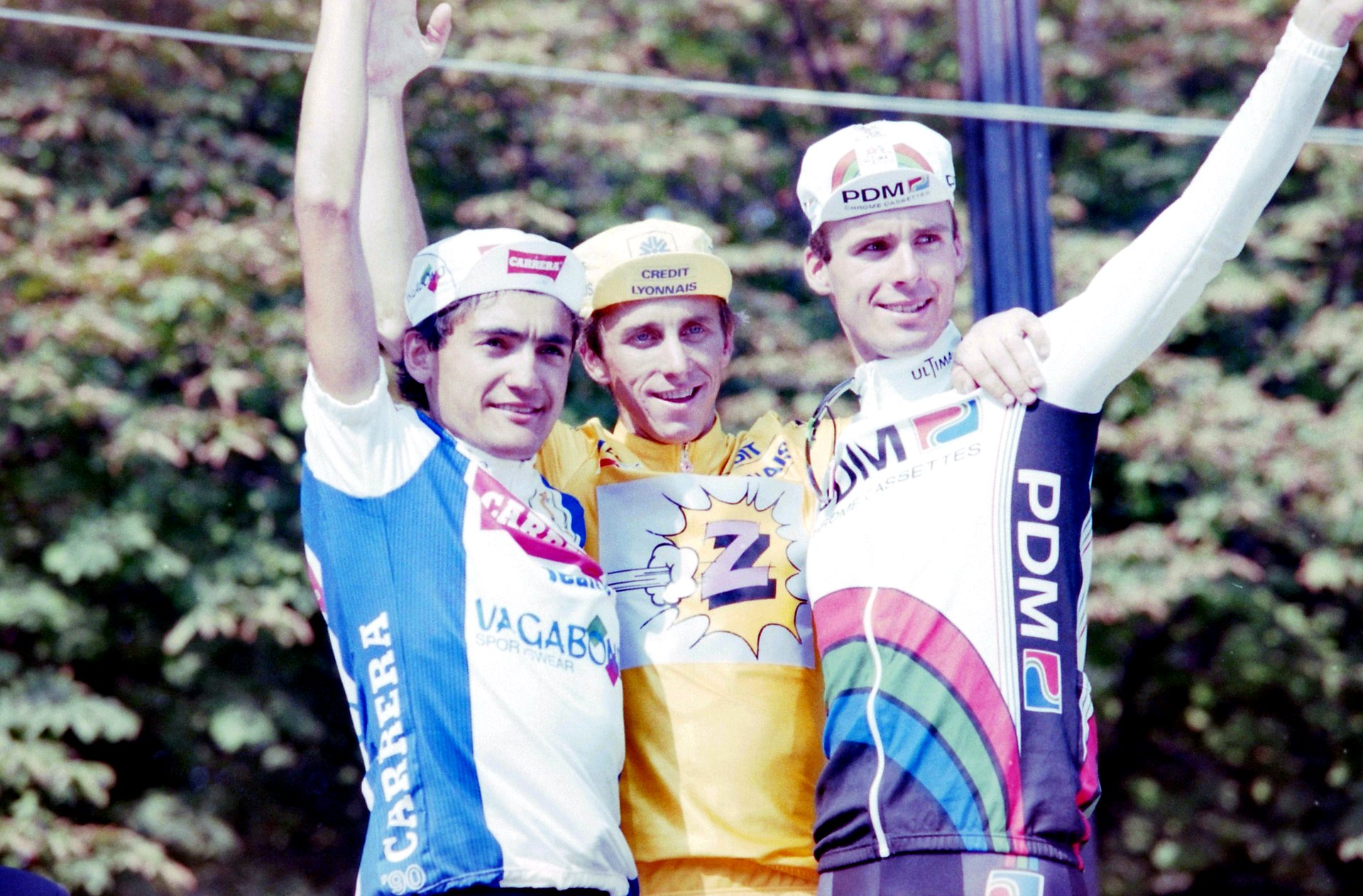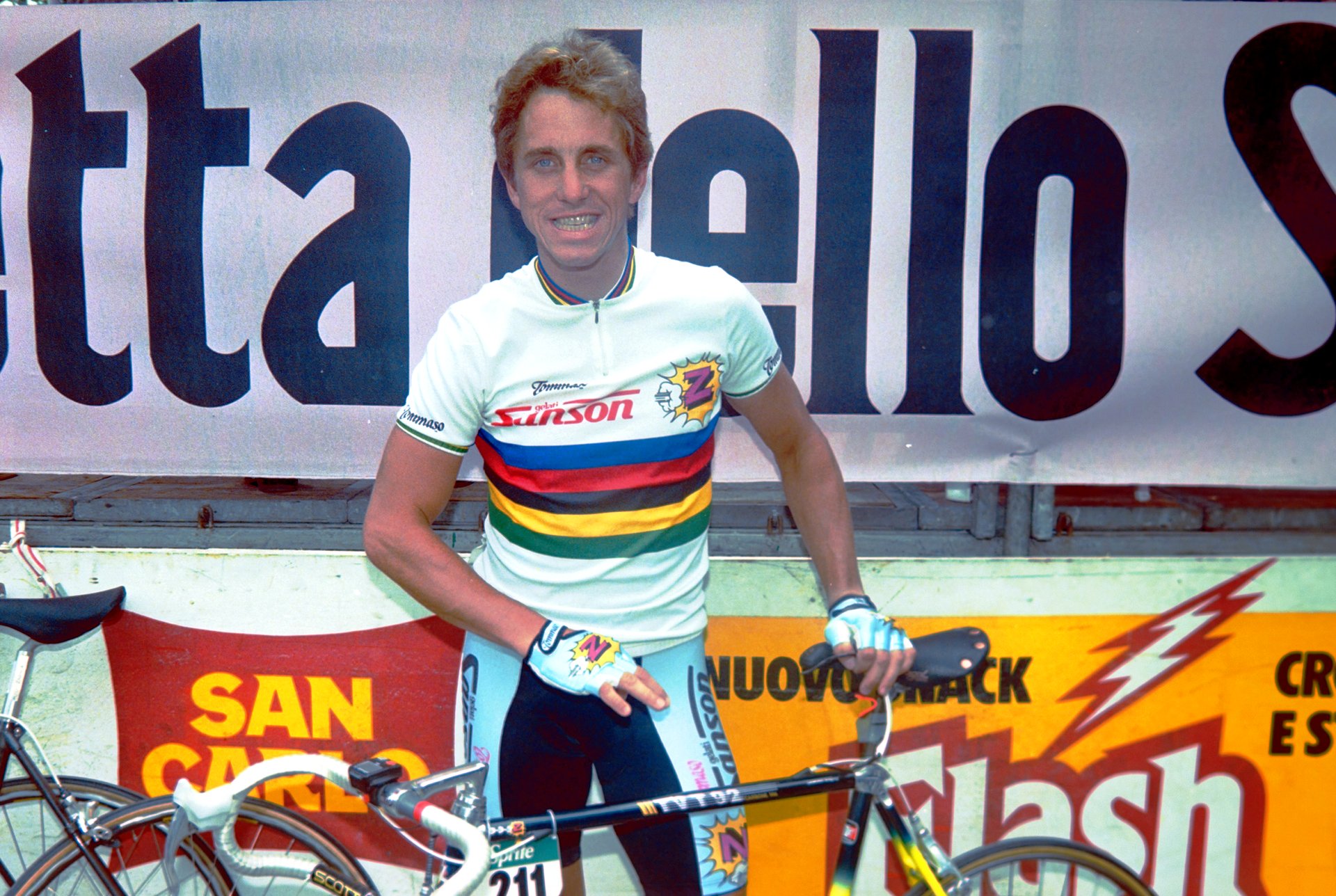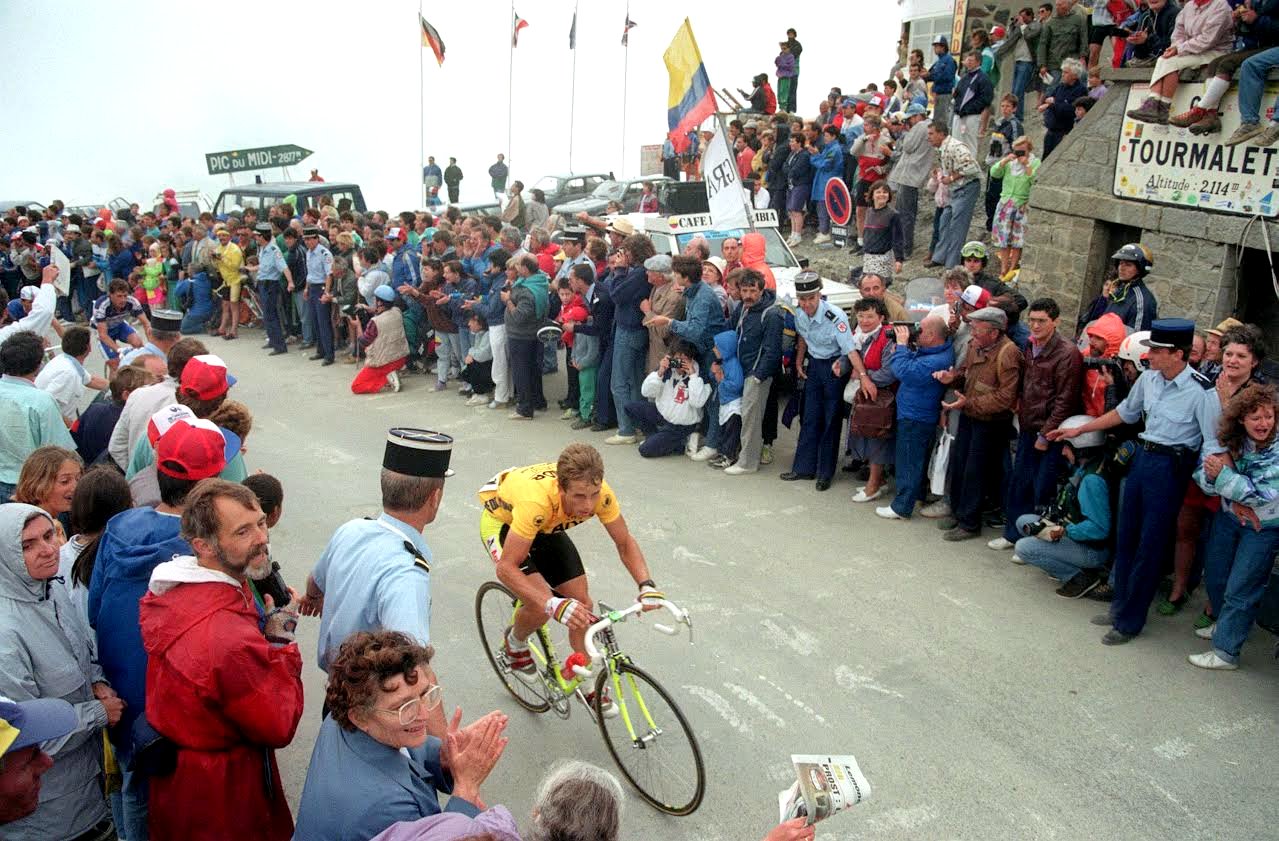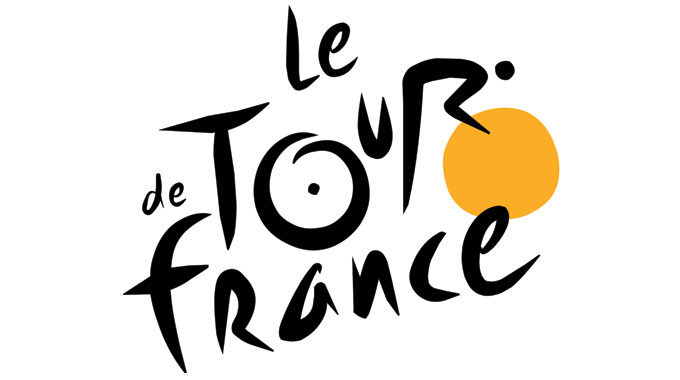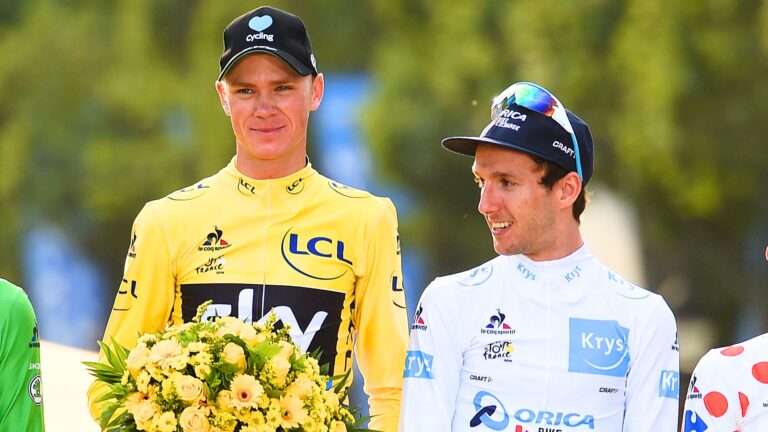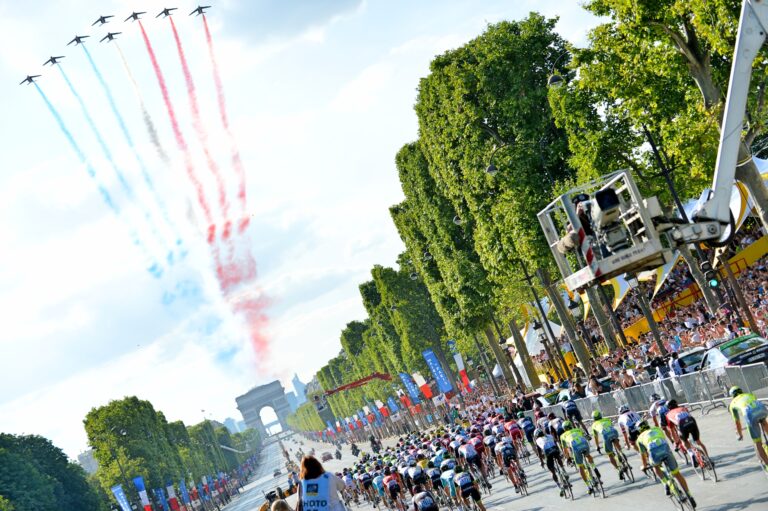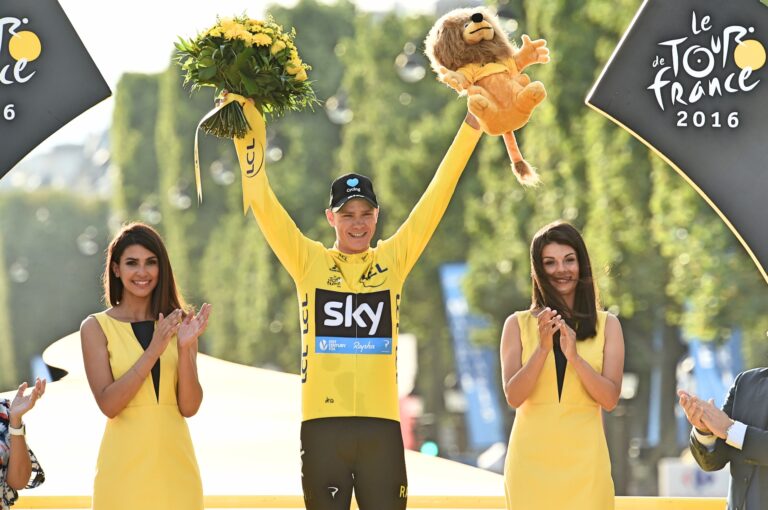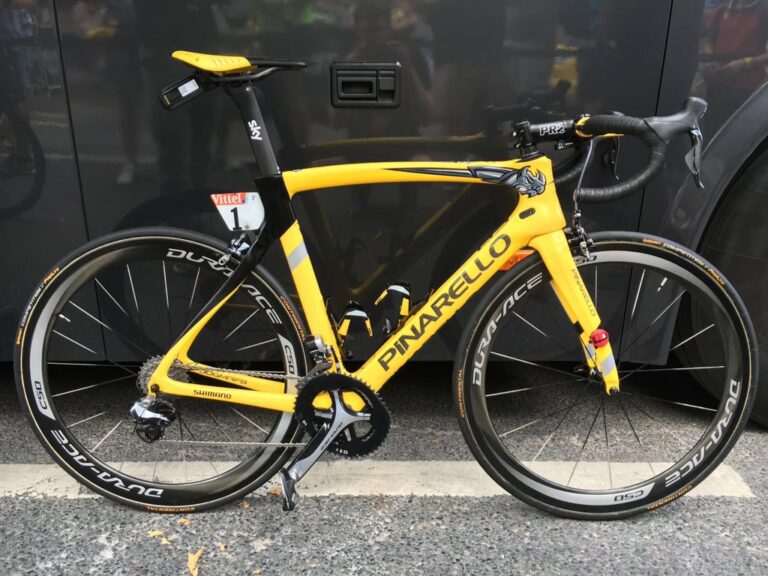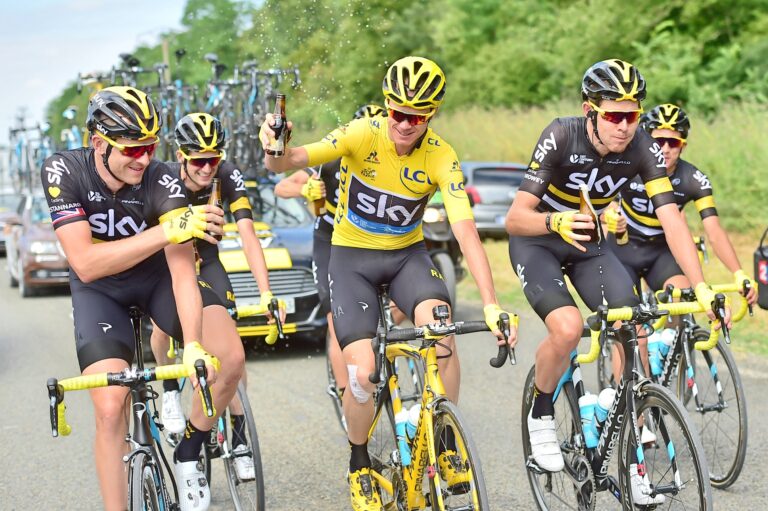After a gloomy first week and a windy second, the weather is heating up on the Tour de France. In Villars-Les-Dombes, the finish town for stage 14, the temperature is well into the mid-30s Celsius. Air conditioning is at a premium.
But one place that is refreshingly chilled is the inside of a motor home that houses three-time Tour champion Greg LeMond. Tucked away among the technical zone of TV trucks, it is where we agree to meet to talk. In the corner LeMond has a screen showing the live footage. There is about 40km to go on the flat stage and I know that my time will likely be up by the time we get to the last 15km.
The American points at the riders on the screen during our opening exchanges: “This is the first year [for a while] that it is being raced almost like the old style – where riders are tired,” he says. “People are thinking about their energy levels and taking it day by day. In the EPO days it was just balls to the wall, nobody had to recover, they could recover artificially.”


